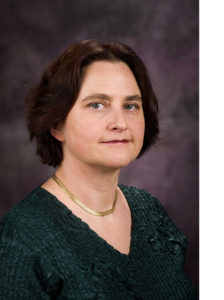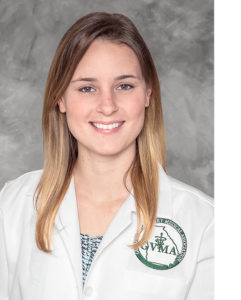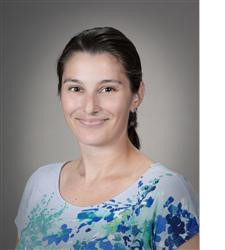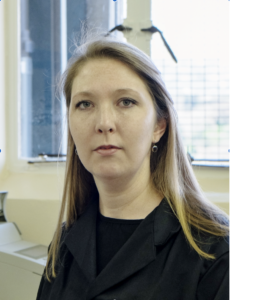 |
Dennis A. Bente, DVM, PhD (University of Texas Medical Branch – Galveston) Dennis is a researcher, educator, and veterinarian. His research focus is on tick-borne hemorrhagic fever viruses such as Crimean-Congo hemorrhagic fever. What makes this research most unique is that his team studies this family of diseases under maximum biocontainment conditions in the BSL4 laboratories of UTMB’s Galveston National Laboratory. Within the unique research facilities of the GNL, they are breaking new ground in the worldwide fight against these diseases. Dennis considers himself a traditionally-trained virologist who seeks non-traditional and multidisciplinary input to improve his craft. The team strives to innovate – not just in the lab, but in communicating the science, practices and findings. Working with some of the world’s most dangerous viruses is multifaceted and intricate, but they want to break down the complexities of this discipline and ignite an understanding that breeds excitement in all audiences. When they can help people truly understand these diseases – on their own terms – the field is stronger for it. Before joining the faculty at UTMB in the fall of 2010, Dennis held posts at the National Microbiology Laboratory in Canada with Dr. Heinz Feldmann, the Texas Biomedical Research Institute in San Antonio with Dr. Rebeca Rico-Hesse, and the Plum Island Foreign Animal Disease Center, NY. He received both his doctorate of veterinary medicine and his PhD from the University of Veterinary Medicine in Hannover, Germany. |
 |
Sally Davis, DVM, PhD, BA (Kansas State University) Sally is an Assistant Professor of Experimental Pathology in the Diagnostic Medicine/Pathobiology department at Kansas State University College of Veterinary Medicine. She is trained in both veterinary pathology and virology. She is a 2014 graduate of the National Institutes of Health Comparative Biomedical Scientist Training Program in partnership with North Carolina State University. Her research interests are emerging and zoonotic viral diseases, including influenza and Rift Valley fever virus. Additionally, Dr. Davis serves as the pathologist for the Department of Homeland Security’s Center of Excellence for Emerging and Zoonotic Animal Diseases, also based at Kansas State. |
 |
Katherine Franc, BS (University of Georgia) Katherine is a third-year veterinary student at the University of Georgia with a degree emphasis in public health. Specifically, her interests lie in preventing disease transmission across the human-animal interface, response and detection of transboundary animal diseases, and improving livestock health and sustainability for subsistence farmers in developing countries. For this reason, Katherine is determined to use the knowledge that she acquires throughout her career to collaborate with international public health workers, policy makers, and farmers to develop solutions that lead to the mitigation of zoonotic or economically devastating livestock diseases globally |
 |
Martha Hensel, DVM (Texas A&M University) Martha graduated from The Ohio State University in 2013 with a doctorate of veterinary medicine. She then completed a three-year residency program in anatomic pathology at Texas A&M University and is currently pursuing a PhD in infectious diseases with a research emphasis in neglected zoonotic diseases such as Brucella species. Her long-term career goals involve combining her training as a veterinary anatomic pathologist with research experience in infectious diseases to establish her own research program or to collaborate in an academic or industry setting. |
 |
Lauren Holinka-Patterson, PhD, MS, BS (USDA) In 2001, Lauren began working at Plum Island Animal Center in the foreign animal disease research unit. Since then, she has been a member of the classical swine fever (CSF) research group which focuses on identifying viral factors determining virulence and understanding molecular pathogenesis of classical swine fever virus (CSFV) in order to rationally design a live attenuated marker vaccine and companion diagnostic tests for CSFV. Over the years, Lauren has been a co-author of more than 35 scientific manuscripts, four of which she is the first author. She also successfully obtained a Master’s degree in 2006 in Molecular Biology from Quinnipiac University and recently completed a PhD program in Veterinary Microbiology from the Department of Pathobiology at the University of Connecticut. Notably, her research project for the PhD program resulted in the discovery of a patented novel CSF DIVA vaccine that is currently in advanced stages of development with a partner in industry. |
 |
Carrie Hunt, PhD, MS, BS (Texas A&M University) Carrie Hunt received her Ph.D. in Medical Science with a focus in Mucosal Immunology from Texas A&M University in August 2016. Carrie is currently a Postdoctoral Research Assistant, continuing her doctoral studies on the interaction between intestinal microbiota metabolites and host immunity. Carrie’s career goal is to use her extensive knowledge of the mucosal immune system to develop novel vaccination strategies for important human diseases with improved efficacy, specificity, and delivery over traditional techniques. |
 |
Amanda Kortum, BA (North Carolina State University) Amanda is a student in the Combined DVM/PhD program at North Carolina State University College of Veterinary Medicine. She has completed two years of the veterinary curriculum and two years of graduate work in Comparative Biomedical Sciences. This multi-disciplinary integration of programs provides a unique education that incorporates training in veterinary science, immunology, and clinical medicine which includes both benchtop and clinical research. Amanda’s current research focuses on the immune system and the cellular mechanisms involved in the migration of innate immune cells to sites of infection. She has a particular interest in host-pathogen interactions. After completion of her doctoral work, Amanda hopes to pursue a career in research, implementing knowledge in veterinary sciences and immunology to the study of highly infectious diseases. |
 |
Nicolette Wright, MSc, BSc (University of Pretoria) Nicolette’s research interests have always been focused predominantly on virology. The main theme of her current PhD research is the development and evaluation of the efficacy of new recombinant immunocontraceptive vaccines for dog population control in rabies endemic areas. It is envisaged that the evaluation of the immunogenicity of these vaccines will lead to larger studies and possible commercialization of future products, eventually enabling herd immunity and eradication of the disease. Some of her past projects have focused on the molecular epidemiology of African lyssaviruses such as Mokola virus and the evolutionary history of Rabies viruses of the mongoose variant. |
- Home
- Training Programs
- Bench to Shop
- 2017 Trainees
